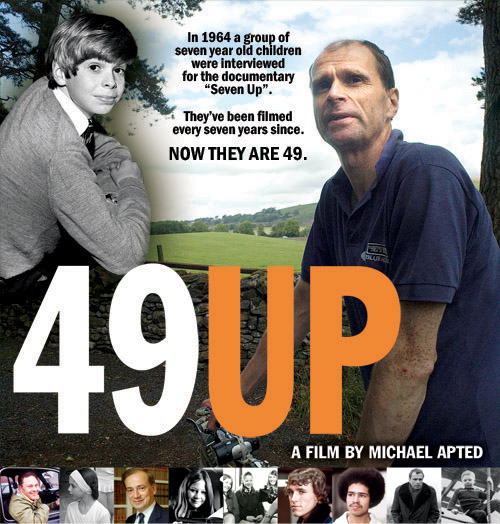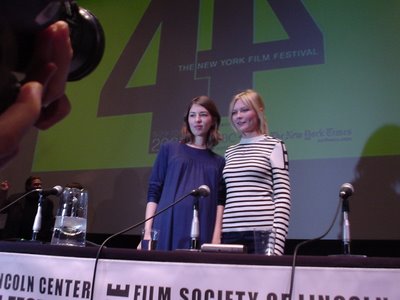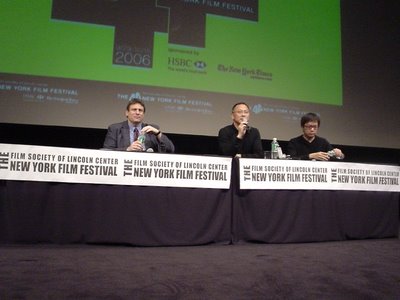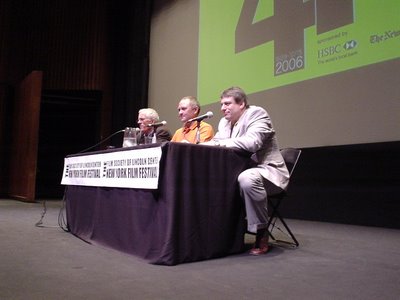49 Up
Reviewed by Martin Tsai
Exploring the impact of class difference on the lives of 14 seven-year-old school children, the groundbreaking 1964 documentary Seven Up! became a cultural landmark in its native England when it first aired. Director Michael Apted has been documenting those lives ever since, following up on them every seven years with a new installment. Through the various films, viewers witness each participant’s innocent childhood, carefree adolescence, hard-fought adulthood, and painful midlife crisis.
The latest, 49 Up, is the first to hit American shores. The 12 subjects (two of the original 14 dropped out in their 20s) have all pretty much given up their lofty ambitions, reconciled with past troubles, and settled for life’s rewards on a relatively lesser scale. Juxtaposing current looks at the 12 with archival footage from previous installments, the film puts life – both theirs and ours – in perspective. It shows how one can turn from a chubby-faced child to a wrinkled grandparent quite literally in a flash.
John and Andrew went to the pre-prep school and predictably grew up to be barristers. Working-class Jackie and Sue went through jobs and marriages, and became single parents. Bruce showed an early sensitivity toward poverty and racial issues, and wound up teaching kids in Bangladesh. Tony failed at being a jockey in his youth and did a string of odd jobs. Nick transcended his early years on the farm and became a nuclear physicist in the States. Neil was unemployed and homeless throughout his 20s and 30s, and later recovered to become a district councilor. It’s mind-boggling to see how some of them remain essentially the same people and achieve their childhood goals, while others have weathered life and emerge completely different.
What started out as a commentary on the class system has morphed into something far more profound. No class is immune from failed aspirations, broken marriages and the joys of parenthood and grandparenthood. The film’s social commentary reaches even further beyond the lives of its subjects: As they move into posh suburbs or promised foreign lands, East Indian immigrants have taken over their old East End neighborhood.
The film is also no longer Apted’s. Feeling that the series has invaded their privacy and their dirty laundry has become water-cooler gossip, many participants start to take the reins of their own narratives by withholding information or questioning the voyeuristic nature of the project. Some of them pointedly accuse Apted of projecting his middle-class worldview onto the series, while others suspect an ulterior motive behind his questions.
Objectively, one can argue that Apted is in a way still projecting his own view in spite of his objects’ attempt to exert control over the depiction of their lives. The 65-year-old filmmaker is possibly facing the issue of mortality, and 49 Up seems to be putting more emphasis on children and family life. But it’s also possible that this entire generation has already fought its battles, and they now just want to live out the remainder of their lives in comfort and contentment.
There are few documentaries or even dramatic films that are able to articulate life quite like 49 Up. This is not just a slice of life, but life in its entirety. Encompassing class, money, marriage, sex and parenthood, the film tells the story of the post-war, baby-boomer generation like few others could. In the age of the so-called reality television when people mug for the camera and blow the most insignificant thing out of proportion, 49 Up reminds us that pure, unadulterated reality is truly quite a spectacle to behold.
Reprinted from EmanuelLevy.com. © Copyright 2006 Martin Tsai. All rights reserved.















